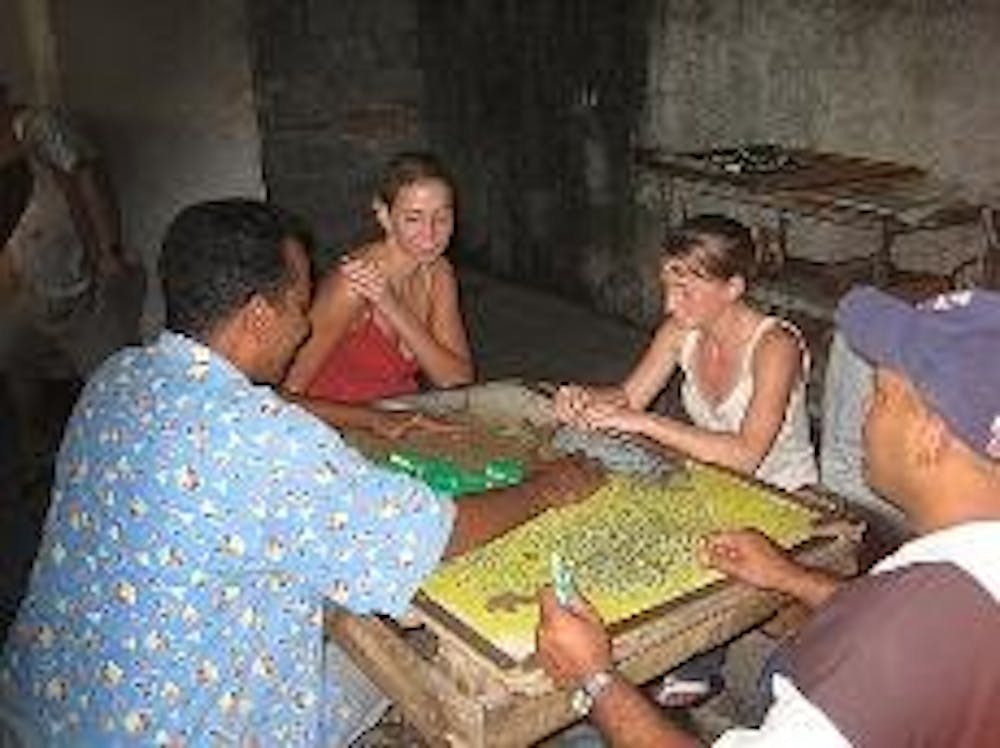The transition of Cuban leadership last week made headlines around the world, but AU students participating in the spring 2008 Cuba enclave witnessed Cuban citizens' reactions firsthand.
Raúl Castro, 76, became president of Cuba Sunday. He succeeded his older brother Fidel, 81, who resigned Feb. 19 after almost 50 years in power.
Jen Gallagher, a junior in the School of International Service who is in the program, said she initially expected mixed emotions from citizens in the form of public displays of remembrance or protest. However, she said reactions to the news ended up being more subdued.
"I saw no overt displays of emotion either way, just people expressing their certainty that Fidel was doing what he needed to do and what was right for the nation and that the new government would be just as good for the revolution," Gallagher said in an e-mail.
Some Cubans Gallagher spoke with expressed hope for change in the government's domestic policies on issues such as housing, transportation and the dual economy, which includes a peso-based economy for citizens and a dollar-based economy for foreigners.
However, Raúl's appointment made them doubt the country would experience significant change. This is the reason Cubans have been calm about the transition - Raúl is an extension of Fidel, Gallagher said.
Michael Anthony, a sophomore in SIS who is in the program, said he would not have noticed the change in leadership had it not been for Granma, the state-run newspaper.
Though most Cubans remain reserved about the transition, they are interested in the implications of a power change, he said.
"There seems to be an overall sense of optimism," Anthony said in an e-mail.
The subdued reaction among citizens may be a product of gradual or expected change in Cuba's politics and economy since the collapse of the Soviet Union, according to an essay written in Cuba by Martin do Nascimento, a junior in the College of Arts and Sciences.
The transition in leadership has also not surprised administrators at the AU Abroad program, AU Abroad Director Sara Dumont said in an e-mail.
Given the sensitive relationship between the U.S. and Cuba, AU Abroad's Cuba program has needed to function legally in the context of those relations, Dumont said.
There is also strong communication among students; the resident coordinator, who is an experienced AU graduate student; the staff of the University of Havana; and their place of residence, Dumont said in an e-mail.
AU briefed the students on safety in the event of political turmoil before departing to Cuba. Dumont, School of Public Affairs Dean William LeoGrande and Acting Provost Ivy Broder also spoke to the students when they visited two weeks ago, according to Gallagher.
"Mostly, we have been encouraged to see as much as possible and talk to [Havana citizens] on the street when the opportunity arises, yet remain aware that we are Americans and need to be careful when broaching the subject of politics," she said in an e-mail.
The fact that Cuba has been in a state of transition for years indicates that the students studying there this semester are not the first group of AU students to see changes in Cuba, Dumont said.
It was a privilege being allowed to study in Cuba, an opportunity most people do not have, Anthony said.
"I think our whole group feels privileged to witness the change first hand," he said in an e-mail. "We have already received such a great opportunity to see Cuba with our own eyes, something that too many people cannot do because of the travel restrictions"





